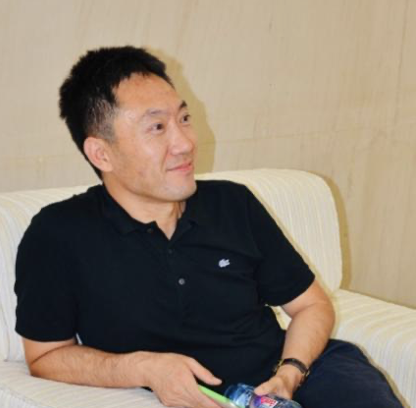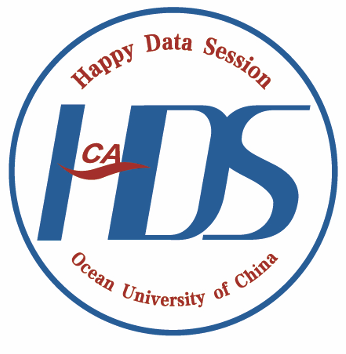There is a growing interest in EM/CA in China, and I’m delighted that Enhua Guo, from the Ocean University of China, has written us a lively and informative account of new developments. In celebrating the 100th HDS (“Happy Data Session”) in China, he reflects on its evolution over the past three years, highlighting local practices, and sharing key takeaways with the international EMCA (Ethnomethodology and Conversation Analysis) community.
Data sessions are a crucial component of EMCA research and serve as one of the most fundamental means of conducting EMCA studies. On the foundational and pioneering work done by K.K. Luke (陆镜光), EMCA in China in the past two decades has seen remarkable development and growth, thanks to the unwavering efforts of some leading Chinese conversation analysts as Guodong Yu (于国栋), Yaxin Wu (吴亚欣), Wei Zhang (张惟), along with Ni-Eng Lim (林尔嵘) from Singapore.
Despite the significant contributions made by these experts, the field of CA in China is still in its early stages, with only a few universities and research institutes regularly conducting CA data sessions. These include Ocean University of China, Shanxi University, Shandong University, Shanghai University of Finance and Economics, among others.
- Beginnings: the Ocean University CA research team, Covid-19, and a new era of Chinese CA research
On January 18, 2020, just days before the Covid-19 outbreak in China, I began my position as a lecturer at Ocean University of China (OUC) after completing my Ph.D. at Tongji University. I was thrilled to learn that two leading Chinese CA experts, Guodong Yu and Yaxin Wu, had very recently joined OUC too as distinguished professors. As someone who had been introduced to the fascinating world of CA by Prof. Yu, I felt incredibly lucky and privileged to join OUC, which has rapidly developed into a new CA hub in China. Shortly after my arrival, the Ocean University of China established the CA research team (OUCCA), which is led by Prof. Guodong Yu and directly funded by OUC at the university level. However, the Covid-19 pandemic forced OUC to close its campus throughout the spring 2020 semester, delaying OUCCA’s first in-person data session until the Fall.
Despite these challenges, Chinese CA scholars remained passionate about data sessions. Thus, the idea for the “Happy Data Sessions” (HDS) was born as a response to the need for virtual data sessions. On April 23, 2020, the first HDS webinar was launched by Guodong Yu (leading host) and me (Enhua Guo, as executive co-host) as part of the OUCCA Team. Over the past three years since its inception, HDS has established itself as the leading online platform for Chinese-speaking CA researchers around the globe. It provides a space for researchers to showcase their findings and benefit from in-depth data analysis.
- The Happy Data Sessions – its goals and its platforms for achieving them
HDS is dedicated to achieving three key goals: (1) expanding the community of Chinese CA scholars, (2) applying CA insights and methods to both mundane and institutional Chinese data, and (3) investigating the features of Chinese talk-and-body-in-interaction. The HDS sessions are conducted through the platform of Tencent Meetings (known as VOOV Meetings outside China). The first 70 sessions were conducted every Wednesday between 18:00-21:00. Since the 71st session, the timing has been changed to every alternate Wednesday between 19:00-21:00. In each HDS webinar, we have at least one experienced CA expert attending, including Yaxin Wu,Guodong Yu, Ni-Eng Lim, Wei Zhang, etc. Through their own data analysis, experienced CA experts can demonstrate to CA novices how to look at data from the participant’sperspective.
Apart from its webinar, HDS has another interactive platform: its own WeChat group, which has 197 registered members and is still expanding. Since all potential HDS meeting participants are members of this WeChat group, it is used to give updates for upcoming HDS webinars and share post-session thoughts and files. Additionally, it also serves as a forum for members to discuss any questions or thoughts related to CA. As many well-known Chinese CA experts are also members of this group, it provides an excellent platform for members to benefit from thought-provoking discussions and stimulating exchanges.
- Invisible mode of HDS
Every HDS webinar has an average of 30 participants. One of its notable characteristics, as distinguished from many other international CA webinars, is that all participants prefer to remain invisible during the meetings. This means that participants can only see each other’s avatars (with identified names below) and their microphone status (mute or unmute), but not their faces or other embodied features.
While it remains to be explored whether unwillingness to show their faces during HDS meeting is related to the implicit, withdrawn ethos in Chinese culture, the lack of mutual visibility could sometimes make it difficult for participants to organize their turn-takingusing nonverbal cues such as eye gaze and other physical gestures. Furthermore, Tencent Meeting’s technological sensitivity to the “one speaker at a time” rule, as well as the potential for multiple participants to simultaneously respond to a prior speaker’s turn, can create challenges in managing overlaps and silence during data discussions.
Fortunately, Tencent Meeting later introduced the “HAND UP” feature, similar to Zoom’s, to compensate for the lack of embodiment characteristic of in-person data sessions. Apart from the advances in technological affordances offered by the Tencent Meeting platform, HDS has also developed practical methods to facilitate smooth turn-taking among participants. For example, if prolonged gaps occur, the host will intervene and allocate turns to ensure the progressivity of the discussion. Of course, the next speaker can always anticipate the end of the current speaker’s ongoing turn and unmute themselves immediately before their turn arrives to minimize any gaps caused by the unmuting operation itself.
- When HDS meets DMC (DIG Mandarin Conversations)
One of the Ocean University CA research group’s main objectives is to promote the development of CA (as well as interactional linguistics) in China. To achieve this aim, OUCCA has been dedicated to building an open-access Chinese conversation corpus known as DMC (DIG Mandarin Conversations); DMC is the very first daily telephone call corpus collected in mainland China, transcribed with Jeffersonian system and accessible to all possible users (See more on Guodong Yu, Yaxin Wu, Chase Wesley Raymond, forthcoming). Meanwhile, for over three semesters, HDS has also been constructing an insider-access corpus of Chinese conversations only within the HDS WeChat group on voluntary basis. Recently, we have made the decision to open access to this corpus and integrate it into DMC, provided that written consent forms be obtained from participants being recorded in the data.
- Celebrating 100th HDS: a talk given by Prof. Wei Zhang
To celebrate the 100th Happy Data Session (HDS), Professor Guodong Yu invited Professor Wei Zhang, a renowned expert in Chinese Conversation Analysis from Tongji University, to deliver a two-hour online talk entitled “Data Session & Conversation Analysis-Celebrating the 100th Happy Data Session”. The lecture attracted more than 100 active participants from both China and other countries. Prof. Zhang provided a thorough and systematic overview of the significant role of data sessions in CA research, covering its origins, purposes, approaches, and principles. Using two concrete examples of interactions, she demonstrated how CA practitioners conduct data sessions. This talk has been very enlightening and beneficial, especially for researchers outside EMCA community who share an interest in research on language and social interaction.
The future of the Happy Data Sessions in China
The Ocean University CA team remains fully committed to advancing the progress of EMCA in China through two major initiatives.
First and foremost, we will continue to organize HDS data sessions every other Wednesday from 7:00-9:00 p.m. We plan to enhance our HDS data sessions by diversifying the types of data presented, featuring not only traditional interactions, but also technology-mediated interactions, such as CMC, human-machine interactions, Metaverse interactions, etc. By incorporating more video-recorded data, we strive to ensure that HDS sessions provide ample space and opportunities for multimodal conversation analysis. Also, we seek to foster a more inclusive participant base by welcoming participants from a range of disciplines, including sociology, psychology, communication studies, and others aside from linguistics. We will remain dedicated to supporting young scholars who are new to EMCA, and hope to inspire their active participation.
Looking to the future: our open-access DMC corpus expansion efforts will continue by working hand-in-hand with the 200 registered HDS members. At the start of every semester, we will launch a recruiting drive to seek volunteers willing to contribute to the publicly-accessible data pool (including the finely-grained transcripts of the data), as part of our ongoing commitment to expanding the size and scope of DMC corpus.






